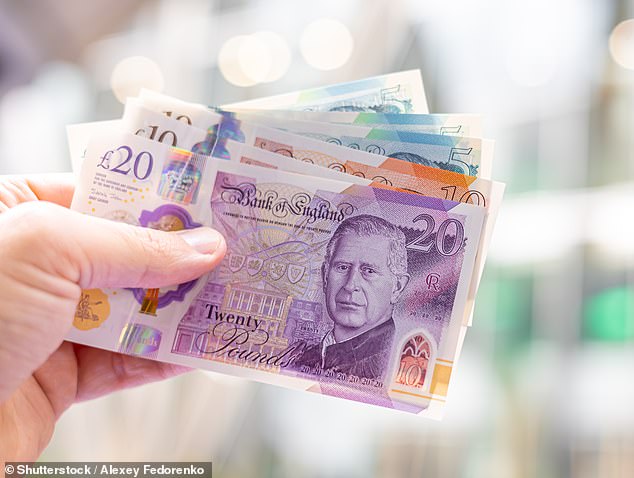Table of Contents
When Russia invaded Ukraine two and a half years ago, Norway raised its national security level to maximum alert and advised its citizens to stockpile cash reserves for emergencies. The Swedes were quick to follow suit.
The ministers did so because they feared that if the war spread north, President Putin could launch a cyberattack and, with the push of a button, shut down digital payment systems and other essential services. In one fell swoop, such a cyberattack could paralyze the country and leave citizens without food and other basic goods.
As we saw yesterday, one wrong flip of a switch (or even a technical error) can easily cause the world to crumble before our eyes.
Airports, stock exchanges, supermarkets, banks and healthcare services have been brought to a standstill after a technical glitch in Microsoft Windows – caused by a bug in CrowdStrike’s “Falcon Sensor” update – led to what has been described as the most devastating computer outage in history.
Within minutes, the blue screen of death meant that shops and services around the world were unable to accept payments. Consumers were unable to buy food at supermarkets unless they had cash and travellers were unable to fly.
Cash is king: The service outage once again demonstrated how essential it is to have cash on hand
Can you imagine the queues and fighting if the crisis had lasted a few days?
As well as highlighting the fragility of our dependence on the internet in the sky, the service outage demonstrated once again how essential it is to have cash stashed away. Yet, ironically, the more vulnerable we become as a society to cyberattacks or technical glitches, the faster we are heading towards a cashless society. It’s the other way around.
Banks and retailers don’t like handling cash: it’s expensive and complicated. They are already forcing consumers to use apps and soon it will be digital payments. That’s why they are closing branches and ATMs at a dizzying pace.
And it’s working. In 2007, cash accounted for 61% of all transactions in the UK. By 2017, that proportion had dropped to a third. Two years ago, the amount of cash in the system was just 14%. Interestingly, the amount of cash in circulation has actually increased slightly since the pandemic. It’s almost as if the public intuitively knows that having cash is more important than ever.
Although Norway and Sweden are tech-savvy societies (barely 3% of transactions are made in cash), the threat of war on their doorsteps has put people on alert. Both countries are introducing laws to enshrine consumers’ right to use cash.
The situation in the UK is more confusing. The Bank of England has said that cash will remain in circulation as long as the public wants it. The last government tried to keep cash in circulation with its minimum service rules for UK banks, ordering them to provide cash in certain geographic areas.
This is not enough. We too should have new legislation to ensure that cash can always be used to protect us, not only from major technological failures and external threats, but also from Big Brother surveillance.
Don’t mention the war
If Rachel Reeves wants to earn our respect, she should stop exaggerating. The Chancellor must believe that if she keeps repeating that Labour has inherited the worst economic circumstances since the Second World War, we will eventually cave in and believe her. But we won’t.
The country’s finances are in disarray, yes. The costs of the £400bn furlough scheme and energy subsidies from Russia’s war with Ukraine continue to weigh on households. Public debt is close to 100 per cent of GDP, the highest level since the 1960s.
But it is nonsense to say that finances are at their worst since 1945.
To say that is to mock what the post-war generation suffered, which suffered so many hardships.
Reeves – and his Treasury Secretary Darren Jones – were back on the attack after public sector borrowing in June rose to £14.5bn. This was down on last year and the lowest since 2019, but higher than the OBR had forecast. Rising tax revenues and the end of energy support schemes were the main reasons for the lower figure.
Reeves knows he will need more money to invest in improving public services, which means either higher taxes or much faster growth.
Unless you use more supply-side levers, it’s going to be tough, but scaring us into submission with comparisons to war isn’t going to work.
DIY INVESTMENT PLATFORMS

AJ Bell

AJ Bell
Easy investment and ready-to-use portfolios

Hargreaves Lansdown

Hargreaves Lansdown
Free investment ideas and fund trading

interactive investor

interactive investor
Flat rate investing from £4.99 per month

eToro

eToro
Stock Investing: Community of Over 30 Million

Trade 212

Trade 212
Free and commission-free stock trading per account
Affiliate links: If you purchase a product This is Money may earn a commission. These offers are chosen by our editorial team as we believe they are worth highlighting. This does not affect our editorial independence.


